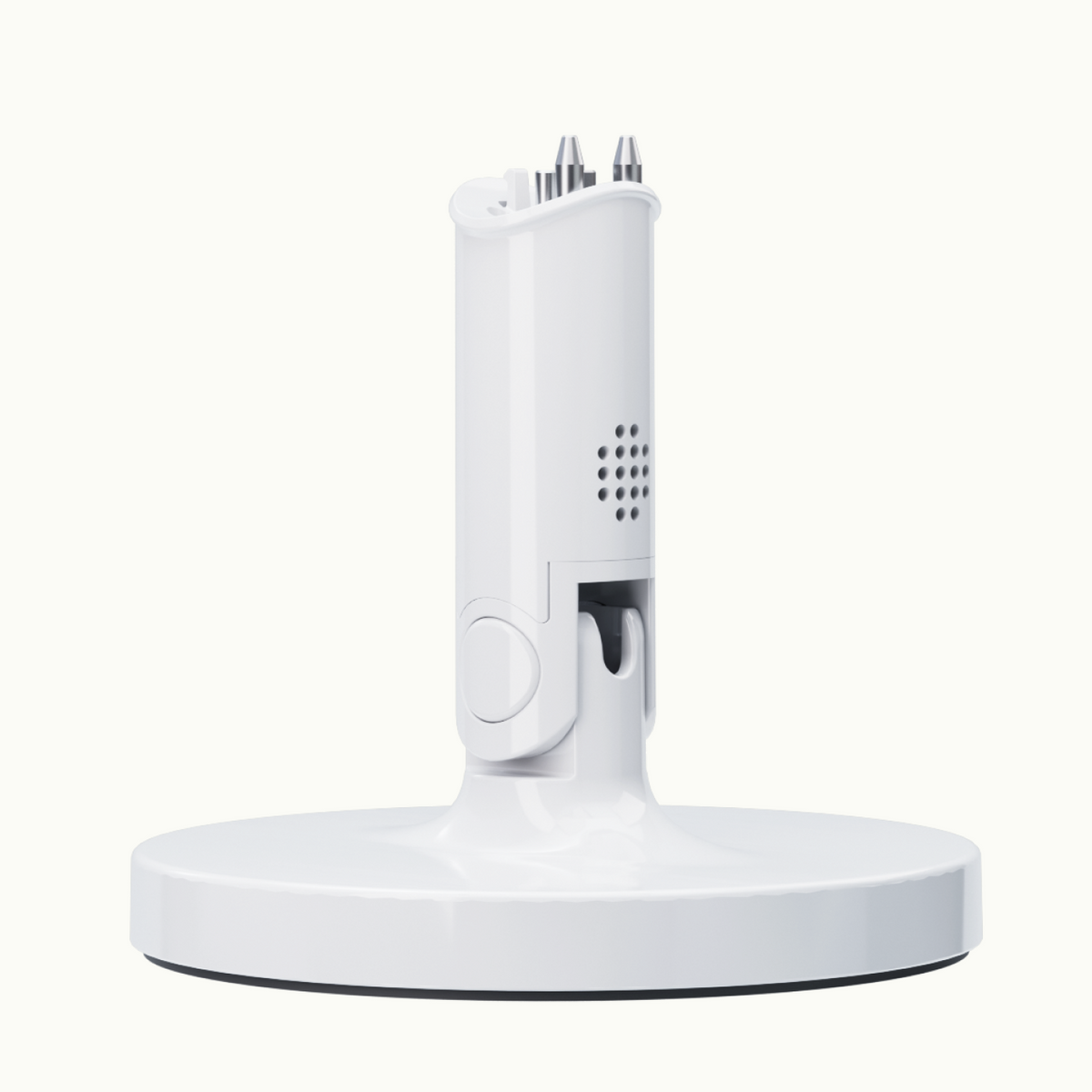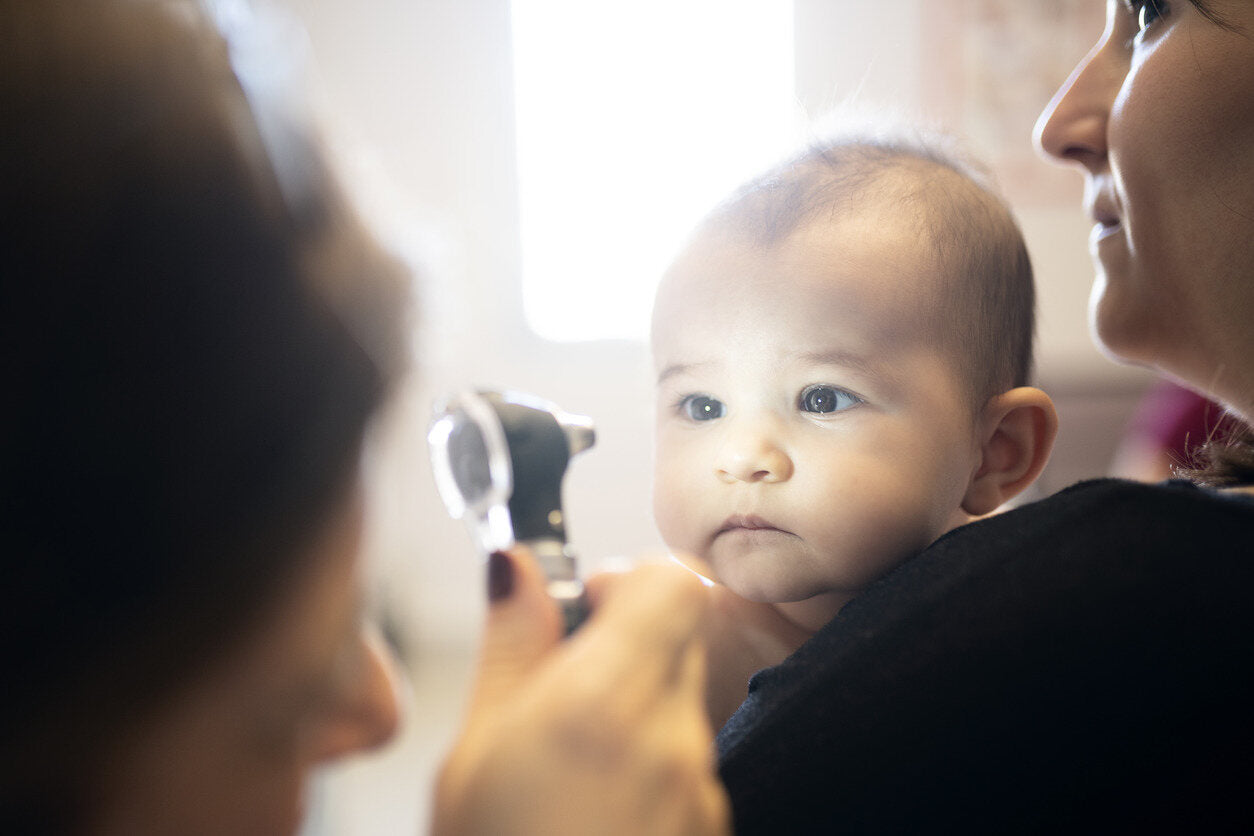Your bundle of joy’s grand entrance into the world is quickly followed by an appointment with their pediatrician. There is a lot to learn in those first few days and weeks: your baby’s energy, their feeding needs and patterns, and their evolving sleep “schedule” are just a few of the things you will begin to understand. Naturally, this new and exciting responsibility will lead to lots of questions about what is normal and what may need a little extra attention. The following questions can help guide your conversation with your baby’s pediatrician during their first weeks of life.
What do newborn care appointments address?
The American Academy of Pediatrics recommends that newborns are examined by a pediatrician within the first 24 hours of life. Healthy newborns who are delivered in a hospital are typically discharged after 24-72 hours depending on delivery type and medical indication. Newborns should be seen by their outpatient pediatrician two to three days after discharge. Here is some of what these initial visits cover:
- A head-to-toe exam. Your baby’s pediatrician will assess their reflexes and tone, examine their eyes, ears, scalp, heart, lung, abdomen and musculoskeletal system, as well as their skin for jaundice and rashes (many of which are normal).
- Hearing screen: Prior to discharge from the hospital, a hearing test will be done. There are two types of tests that assess a newborn’s hearing–the Auditory Brainstorm Response (ABR) and the Otoacoustic Emissions (OAE) exams. Hospitals typically use one or the other. It is recommended that all newborns are screened. It is possible to fail an initial hearing screen despite your newborn’s ability to hear, so referrals will be made for a repeat test within the first couple of weeks of your baby’s life.
- Measurements. At each check up visit your baby will have their measurements taken: head circumference, weight, and length/height will be checked to ensure they are growing consistently and appropriately.
- Vaccinations. The U.S. Centers for Disease Control and Prevention (CDC) recommends that all babies receive the Hepatitis B vaccine, ideally within the first 24 hours of their life.
Common questions parents have at their newborn’s first doctor appointment
Whether this is your first child or not, the early days come with lots of questions. Remember, there is no such thing as a silly question. It is hard to remember everything you will want to address at your appointment, especially if you’re a bit sleep deprived, so try to write down your questions as you think of them in preparation of your newborn’s first pediatrician appointment.
Here are a few common questions that are applicable to every baby:
1. How much should my newborn sleep?
Newborns sleep a lot. You can expect your baby to sleep anywhere between 14 and 17 hours a day! That can be surprising to first-time parents, but rest assured that much sleep (and sometimes even more) is normal. Your newborn has gone through a major transition and brief periods of wakefulness to feed and look around a bit may be all they can handle before they are ready for another nap.
2. What’s a normal amount for my newborn to eat?
When your baby can’t yet express in words when they’re full, it’s natural to have questions around how to tell if they’ve eaten enough. It’s normal for babies to lose weight during the first 5 days of their life. They can lose up to 10% of their weight. Most healthy babies are back to their birth weight by day 10-14 of life.
Whether you breastfeed or offer bottles of pumped breast milk or formula (or a combination of these), your baby’s pediatrician will discuss feedings and based on frequency and weight changes will be able to give you an idea of whether the volume they are eating is appropriate and adequate. In the beginning it may be helpful to keep track of how often and for how long/how many ounces your baby is eating, and share that information at the appointment.
3. Should I wake my baby for feedings?
Because a newborn's stomach is small, they typically eat every 1.5 to three hours. If your baby sleeps for longer stretches, you may need to gently wake them up. Unless your pediatrician has recommended otherwise, once your baby is back to their birth weight, you shouldn’t need to wake them at night for feedings. Every baby is unique, so check with your pediatrician at their newborn appointment to determine the right approach for your baby. Remember, before we had alarm clocks, baby’s were our alarm clock and would let us know when they were ready for their next meal.
4. How often do I need to change my baby’s diaper?
Disposable diapers are very absorbent and newborns are often unfazed by wet or soiled diapers. However, it is important to regularly change your newborn's diapers to reduce the chances of a diaper rash. The expectation is that newborns will pee at least once in the first 24 hours of life and then increase daily (this correlates with the number of days alive: on day of life 2 expect a minimum of 2 pee diapers, on day of life 3, 3 pee diapers…, until 6 days of life. Beginning of day of life 7, expect a minimum of 6 pee diapers per 24 hour day). Many brands of disposable diapers have a yellow line on the outside of the diaper that turns blue when there is urine present in the diaper (this is very helpful since it only changes color with pee and not poop). A newborn’s initial stool is meconium, a black tarry stool and should occur within 24-48 hours of life. Over the first few days of life as a newborn is getting more nutrition, the stools will transition to brown and mucusy and then yellow (sometimes greenish or orange), seedy and watery. At this point it is common that babies pass a stool with each feeding, a reflex called the gastrocolic reflex.
5. What vaccinations does my baby need?
Vaccinations are vital to protecting your baby from certain serious diseases. The first vaccine that newborns receive is the Hepatitis B vaccine, typically given in the hospital at the time of delivery. The CDC publishes a schedule of the vaccines and at what ages and intervals they should be administered. Here is a link to that schedule for children between the ages of 1 month and 6 years. Your pediatrician will likely follow a similar schedule. The earliest days of your baby’s life is an appropriate time to ask any questions about the when, why, and how of the vaccination schedule that your pediatrician recommends.
6. How much crying is normal?
It’s totally normal for your little one to cry at various times throughout the day. Crying is the way they communicate. It is how they tell you when they’re hungry, sleepy, uncomfortable, cold, hot, annoyed or perhaps not feeling so great. But how much crying is too much crying? Are there times when more crying is expected? And how does the amount of crying evolve over time? If you’re not sure what’s normal, don’t hesitate to bring it up at your baby’s newborn appointment.
7. How should I bathe my baby?
Your baby’s first bath typically takes place within 24 hours after birth. It’s recommended to give your baby a sponge bath until the umbilical cord stump falls off and is dry, typically aftera few weeks. If you’re hesitant about when or how often to bathe your baby, the newborn appointment with their pediatrician is the right time to ask.
Additional questions about feeding your newborn
In addition to questions about how much and how often your baby should eat, you may have other more specific questions, for example….
- How long should my baby nurse on each breast during a feeding?
- Is it normal that my baby is cluster feeding?
- Is my baby always hungry when they want to suck?
- Can I breastfeed my baby while taking my medications?
- Are all formulas created equal?
- Is powder formula ok for a newborn? Or do I need to use a ready to feed formula?
- Should I feed on demand or is it better to have a schedule?
- If bottle feeding, how much should I offer per feeding?
- My baby struggles to latch. What should I do?
- When can I start pumping/offering a bottle if I’m breastfeeding?
- Can I give my baby a pacifier?
Additional questions about newborn’s sleep
Aside from how long they spend sleeping, newborns may have some sleep habits that you’re unsure about. There’s also a lot to learn about your baby’s sleeping environment to ensure their safety, too. Here’s a list of questions you might want to ask your pediatrician:
- Should I wake my baby to feed?
- Where should my baby sleep?
- How can I reduce the risk of SIDS?
- Will my newborn sleep better with a white noise machine?
- At what age should I start a bedtime routine with my baby?
- What are some tips for when my baby won’t sleep?
- What should my baby wear to sleep?
Questions about burping your newborn
Burping your baby (and the mess it sometimes makes) may help reduce excess gas in their digestive tract. If you’re new to burping, you may want to ask your pediatrician for some tips and tricks that ensure your baby’s comfort. Some common questions include:
- Can you demonstrate some effective burping techniques?
- Is it normal for my baby to spit up? How much spit-up is too much?
- How do I know if my baby has burped enough?
- Is it essential for babies to burp after each feeding?
- Can I put my baby down after eating if they haven’t burped?
- When do I stop burping my baby?
- Does it matter how I burp my baby if they’re breastfeeding or formula feeding?
Questions about your newborn’s physical and emotional development
Your little one’s physical, emotional, and mental development begins from their first moments. Introducing them to new activities, engaging with them, talking and singing to them, and creating a safe environment all make a difference. Here are a few things you can ask your pediatrician about supporting their development.
- What can I do with my baby to help their development?
- Is my newborn old enough for toys?
- When should I start reading to my baby?
- When do I start tummy time?
- When will my baby start to smile at me?
- Is there a certain room temperature that is best?
Questions about soothing baby
A cranky baby can be both frustrating and heartbreaking for a parent as they try to interpret their baby’s needs. Some questions you can ask about soothing your baby include:
- What are some ways to soothe my baby when they are crying/inconsolable ?
- Is it ok to use a pacifier?
- Should I swaddle my baby?
- Will baby massage help?
- Is white noise helpful?
- Can I take my baby for a walk to help them settle?
Questions about the umbilical cord
After your baby is born, the umbilical cord is clamped and cut. It falls off on its own within a few weeks. Here are some questions to ask your doctor about the umbilical cord.
- How do I properly care for the umbilical cord area?
- Do I need to clean the area around the umbilical cord?
The bottom line
Trusting your instincts is important. You know more than you might think about what your baby needs. Try not to approach the newborn period as a procedure that has one correct approach but as a time to embrace flexibility and patience learning about your new baby. Your pediatrician is a resource and asking your questions can help guide you on your parenting journey. The questions we include are examples of questions that some parents have asked, you can personalize it for your family.
About Dr. Liza Natale:

Liza Natale is an NYC based general pediatrician who has cared for infants, children and adolescents for over 19 years. In addition to her general pediatric practice, Dr Natale teaches classes at the 92nd Street Y (one of her favorites, Caring For Your Newborn Grandchild is a class for expectant grandparents) and serves as the medical consultant for The Acorn School, an independent nursery school in Manhattan. Dr Natale was one of the first pediatricians in New York to routinely screen parents for postpartum depression. This screening has since become recommended as routine by the American Academy of Pediatrics.






